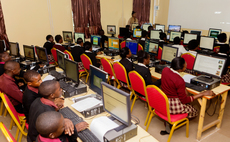There is still a growing channel opportunity in the need to avoid IT waste, says Fleur Doidge
One colleague stated in the office recently that IT channel companies and business people are not interested in green technology because there is little in the way of profit in it for them. Can ...
To continue reading this article...
Join CRN
- Enjoy full access to channelweb.co.uk - the UK’s top news source for the IT channel
- Gain the latest insights through market analysis and interviews with channel leaders
- Stay on top of key trends with the Insider weekly newsletter curated by CRN’s editor
- Be the first to hear about our industry leading events and awards programmes
Already a CRN member?









